Alphabet familiarity Alphabet Worksheets
9 filtered results
-
From - To
Discover our engaging "Alphabet Familiarity Worksheets" designed to boost young learners’ recognition of letters through fun and interactive activities. These worksheets provide a comprehensive approach to help preschool and kindergarten children familiarize themselves with the alphabet. Kids will enjoy tracing, coloring, and identifying letters in creative contexts. Our resources blend learning with play, ensuring that children develop a strong foundation in literacy while having fun. Ideal for home or classroom use, these printable worksheets are perfect for enhancing fine motor skills and promoting letter recognition in early education. Start your child’s journey towards reading confidence today!
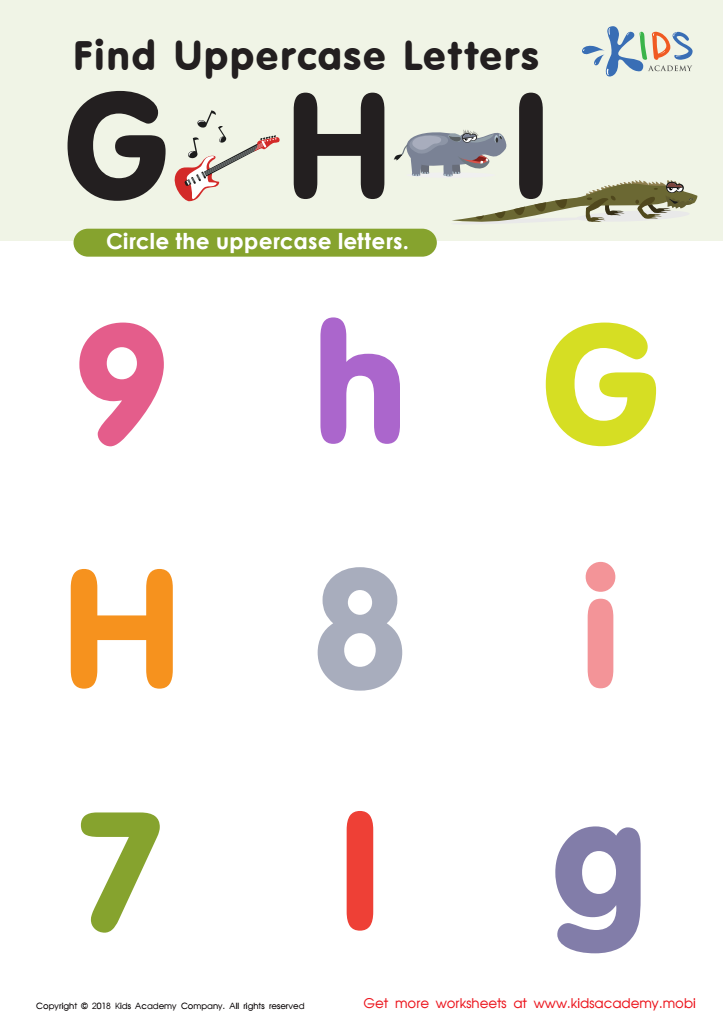

Find Uppercase Letters G, H, and I Worksheet
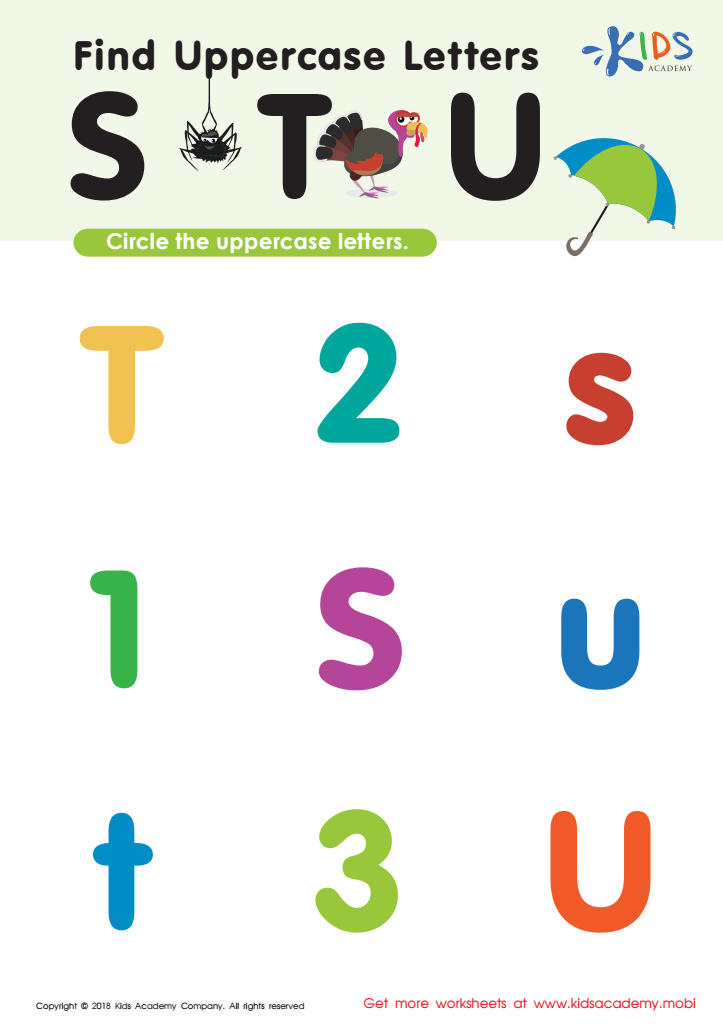

Find Uppercase Letters Worksheet
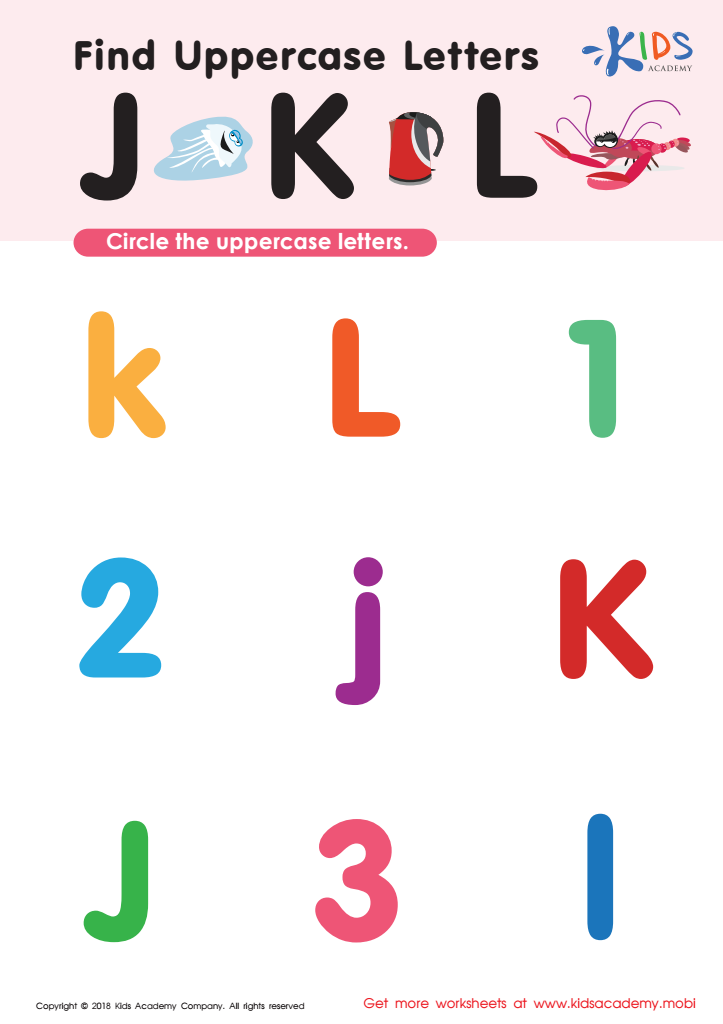

Find Uppercase Letters J, K, and L Worksheet
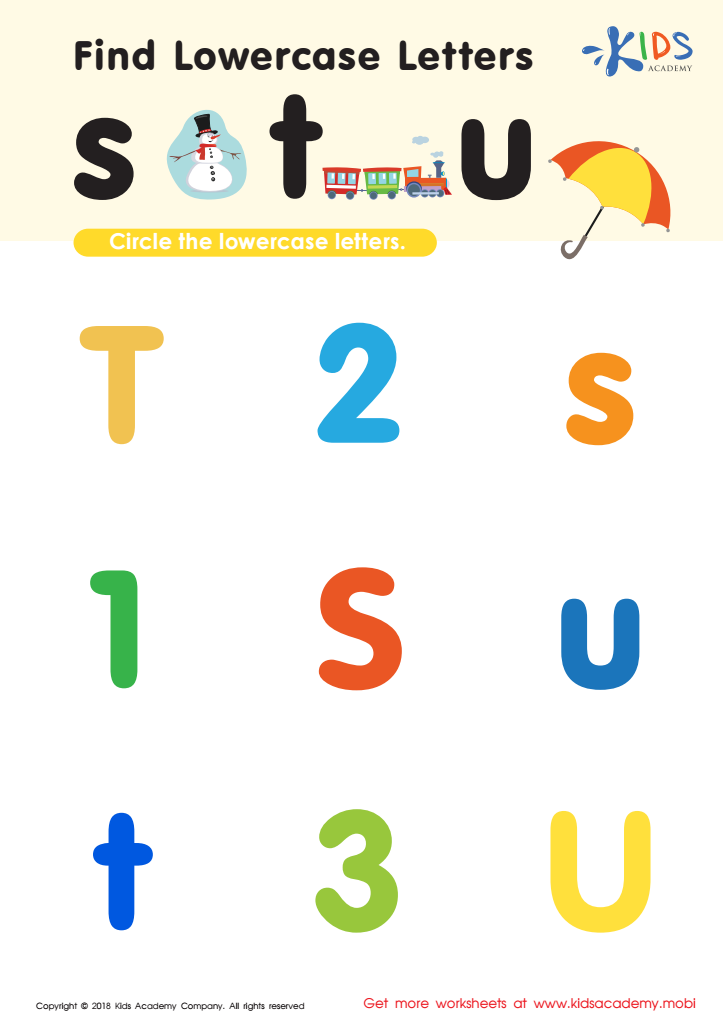

Find lowercase Letters s t u Worksheet
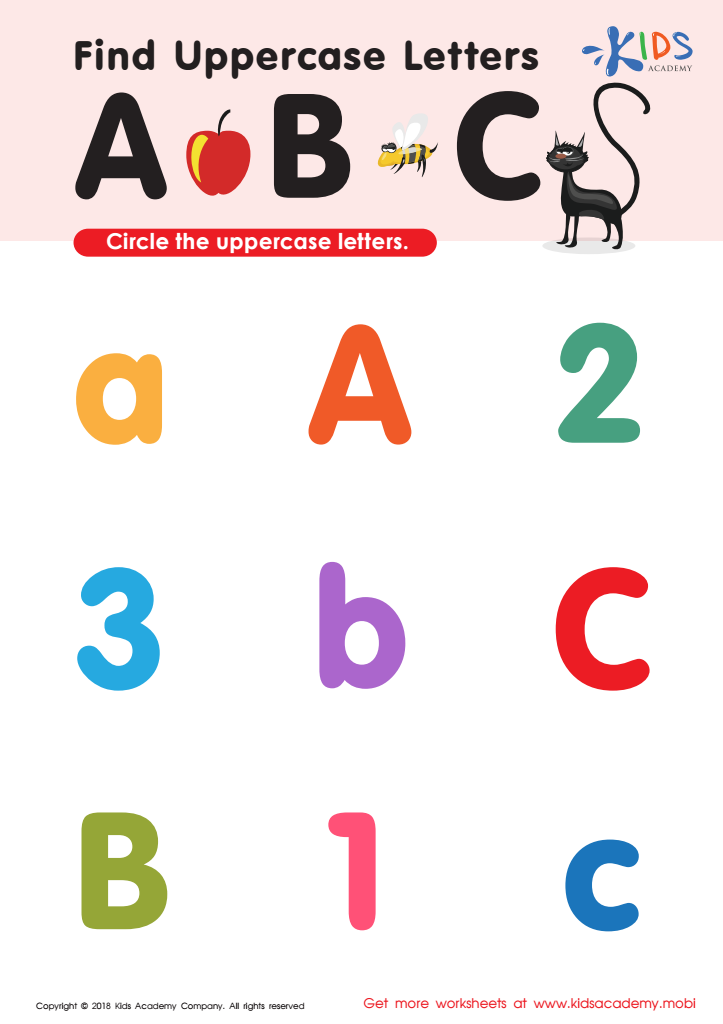

Find Uppercase Letters A, B, and C Worksheet
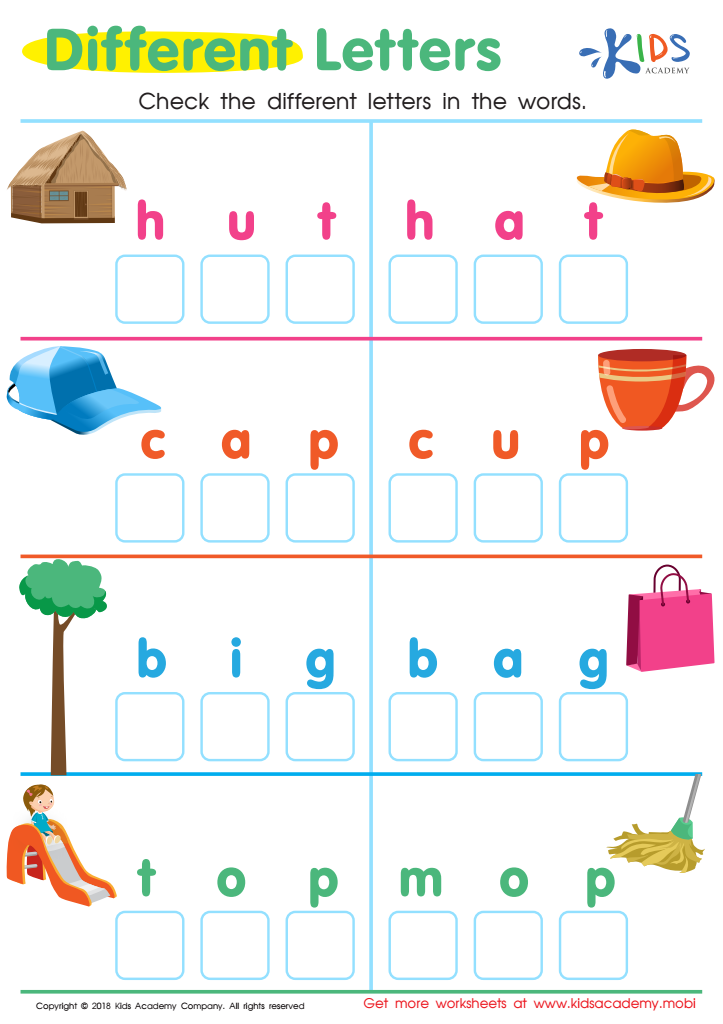

Different Letters Reading Worksheet
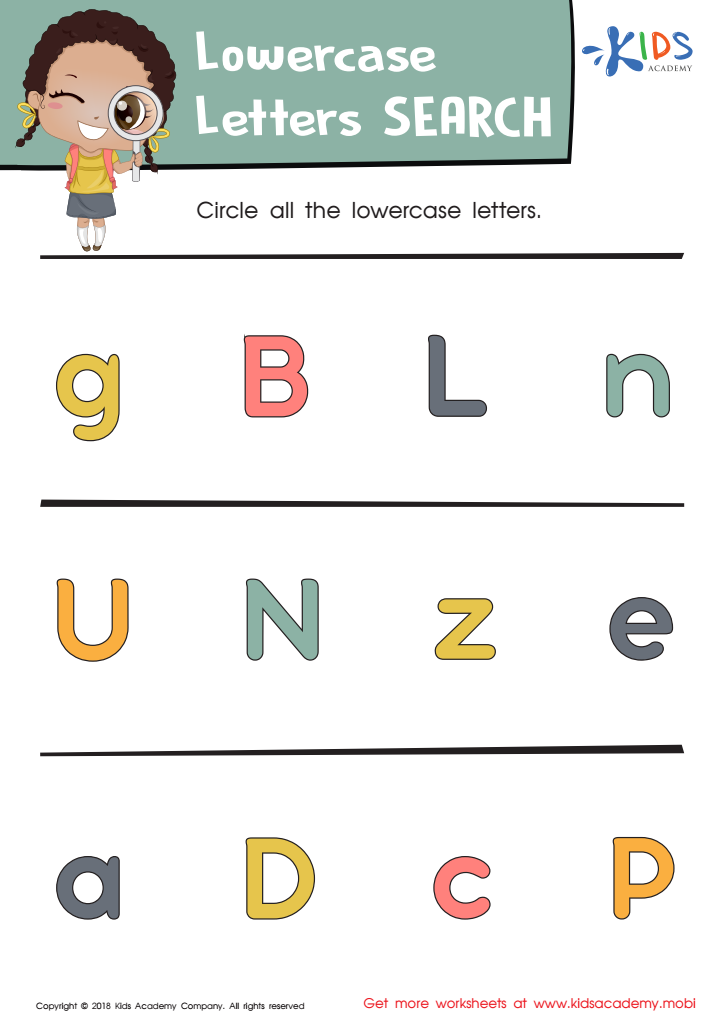

Lowercase Letters Search: Assessment Worksheet
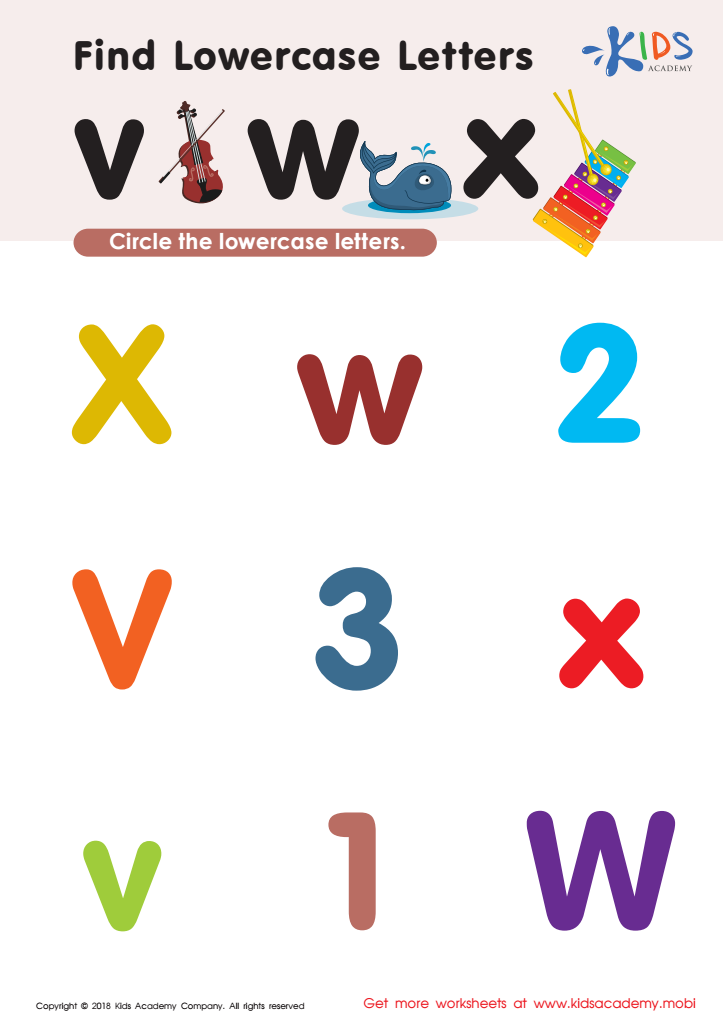

Find Lowercase Letters v w x Worksheet


Phonological Awareness: Assessment 1 Worksheet
Alphabet familiarity is a foundational skill in early childhood education, critical for developing literacy and communication abilities. When parents or teachers prioritize alphabet familiarity, they lay the groundwork for children's reading and writing skills. Recognizing and recalling letters facilitates phonemic awareness, helping children understand sounds associated with each letter, which is vital for decoding words and constructing sentences.
Additionally, familiarizing children with the alphabet enhances cognitive development. It encourages memory skills and supports the transition from oral to written language, enabling kids to express their thoughts and creativity more effectively. Beyond academics, alphabet familiarity fosters confidence. Children who possess strong letter recognition can engage more readily with learning materials, participate in classroom discussions, and express themselves during speaking exercises.
Moreover, early exposure to the alphabet can instill a lifelong love for reading and learning. When parents and teachers integrate fun activities and play into letter recognition, such as games, songs, or storytelling, it becomes a more engaging and enjoyable experience. Ultimately, alphabet familiarity is not just about learning letters—it's about nurturing curious, confident, and capable learners prepared to navigate their educational journeys successfully. For all these reasons, investing in alphabet familiarity is essential for every child's early development.

 Assign to My Students
Assign to My Students





















